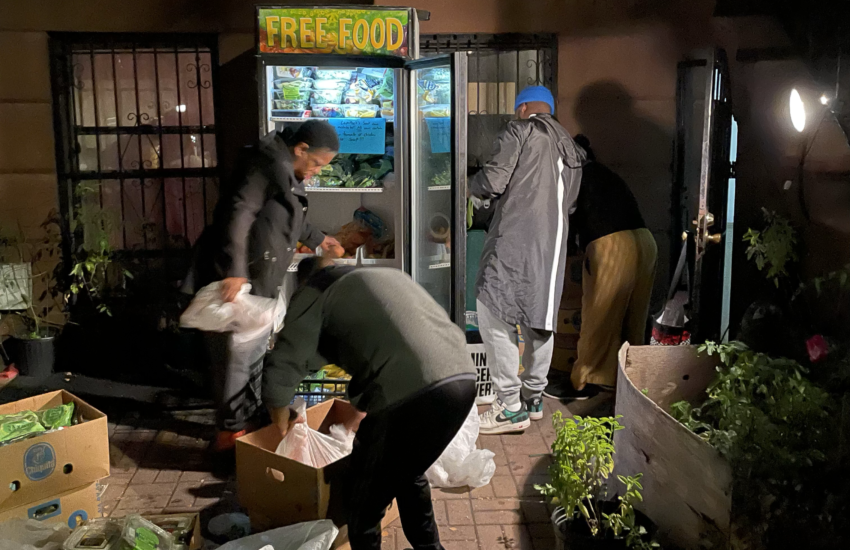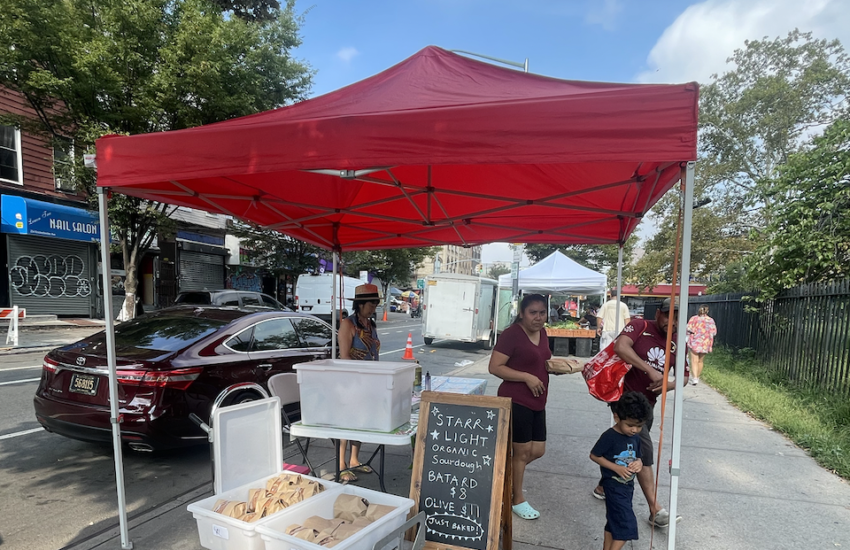The Pandemic Hurt Chinatown Badly. Here’s What Millennials Are Doing to Help.
As COVID-19 began to snake across the United States in the early months of 2020, Anna Huang and Chloe Chan noticed a wave of xenophobia and hate building towards New York City’s Asian communities.
As the pandemic hit small businesses there, Huang and Chan envisioned rebuilding Chinatown’s economy through spotlighting local businesses and teaching people more about Chinese culture.
This led them to found Mott Street Girls, a New York City business that hosts walking history tours of Chinatown.
“Even before the coronavirus officially hit American soil, people stopped going to Chinatown due to fear of the virus, misinformation, and xenophobia,” said Chan.
Former U.S. President Donald Trump made it a point to blame the spread of the virus on China, dubbing it the “China Virus” and refusing to call it by its scientific name.
His targeted comments exacerbated an already rising tide of hate crimes towards Asians and Asian businesses, such as the March 2020 spree killings at Asian owned spas in Atlanta, Georgia. In Portland, Oregon, within two months of the spread of the pandemic, at least 13 Asian owned businesses had their windows smashed. According to Womply, a service that uses credit and debit card transactions to provide insights to small business owners, by April 2020, more than half of Chinese restaurants in the United States had closed completely. Surviving businesses saw revenue drop by over 80%.
Now, two years later, Asian-owned businesses in New York City continue to grapple with the pandemic’s effects. Through that struggle, second and third generation Asian-Americans are stepping up to fill the gap.
Lucy Yu is one of the Millennials spearheading this front. In 2020, Yu opened Yu and Me Books, the first female Asian-owned bookstores in the city.
“In the rise of anti-Asian hate crimes, building out a business that tended to the growing needs of people who looked like me was vital,” said Yu. “So many Asian-Americans… have come to support [me] an incredible amount.”
Yu and Me Books is just one of many businesses born out of a cry for help from Chinatown small businesses, who struggled greatly due to language and tech-related barriers, Chan said. Those barriers prevented business owners from accessing COVID-19 related or financial resources, and a zip code issue – parts of Chinatown are bridged into higher-income zip code areas that didn’t qualify for assistance – prevented many Chinatown businesses from taking advantage of federal resources like the Paycheck Protection Program loan.
“Walking around Manhattan’s Chinatown, it’s hard not to notice the empty storefronts and ‘For Rent’ signs,” Chan said.
In 2022, some businesses continue to operate at reduced capacity, and some, including two of Chan’s most beloved childhood eateries, shut down completely. Chan also noted that many Chinatown businesses suffered as they faced labor shortages. “Dim sum parlors are often staffed by elderly employees,” she said. “They fear the COVID virus and anti-Asian hate crimes.”
Concern for the elderly was a feeling that echoed through all of Chinatown, whether residents worked at local businesses or not. Kar-ho Leung, the director of culture at 12-Pell, a hair-care and lifestyle store in the heart of Chinatown that caters to locals, believes the family-oriented culture of Asian-Americans was also a contributor to the economic plight of these businesses.
“A lot of the challenge in the Asian community is that a lot of people actually live at home with the elderly and their parents,” said Leung. “It was really tough to take on the risk to get people to go outside.”
In Chinatown, where many local businesses are supported by the majority Asian local population, the reluctance of many to go outside certainly hasn’t helped the area rebound economically.
“A lot of businesses aren’t even on Yelp. Nonprofits formed out of COVID were formed by the younger generation,” said Leung. “They were able to connect the dots and provide the older generational businesses with resources.”
12-Pell, a Millennial run service with considerable social media and online presence, fared much better than surrounding generational businesses in the wake of the pandemic. But new non-profits, like Welcome to Chinatown, help older businesses that don’t have an online presence by helping them with marketing, social media, and fundraising.
“We announced one day that if you go out and spend $45, we’ll give you a free haircut,” said Leung. The objectiveencouraged many people to support Chinatown businesses, and a video of the endeavor even went viral. “We just wanted to cheer everybody up.”
Mott Street Girls has now raised over $12,800 for their community and continues to partner with community organizations in order to support and uplift local businesses who are still recovering from the pandemic. Their current walking tours teach tour members about the Chinese Exclusion Act and retracing Chinatown’s culinary history through food tastings.

